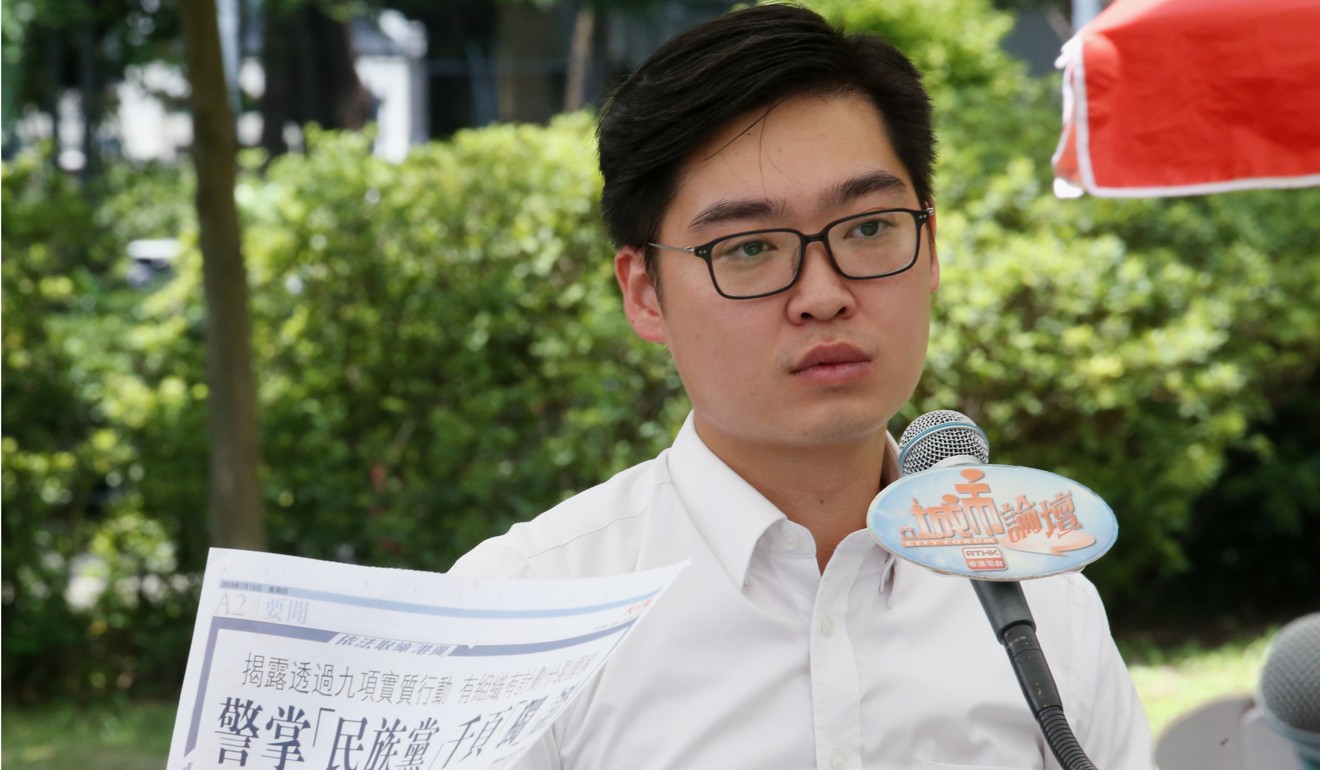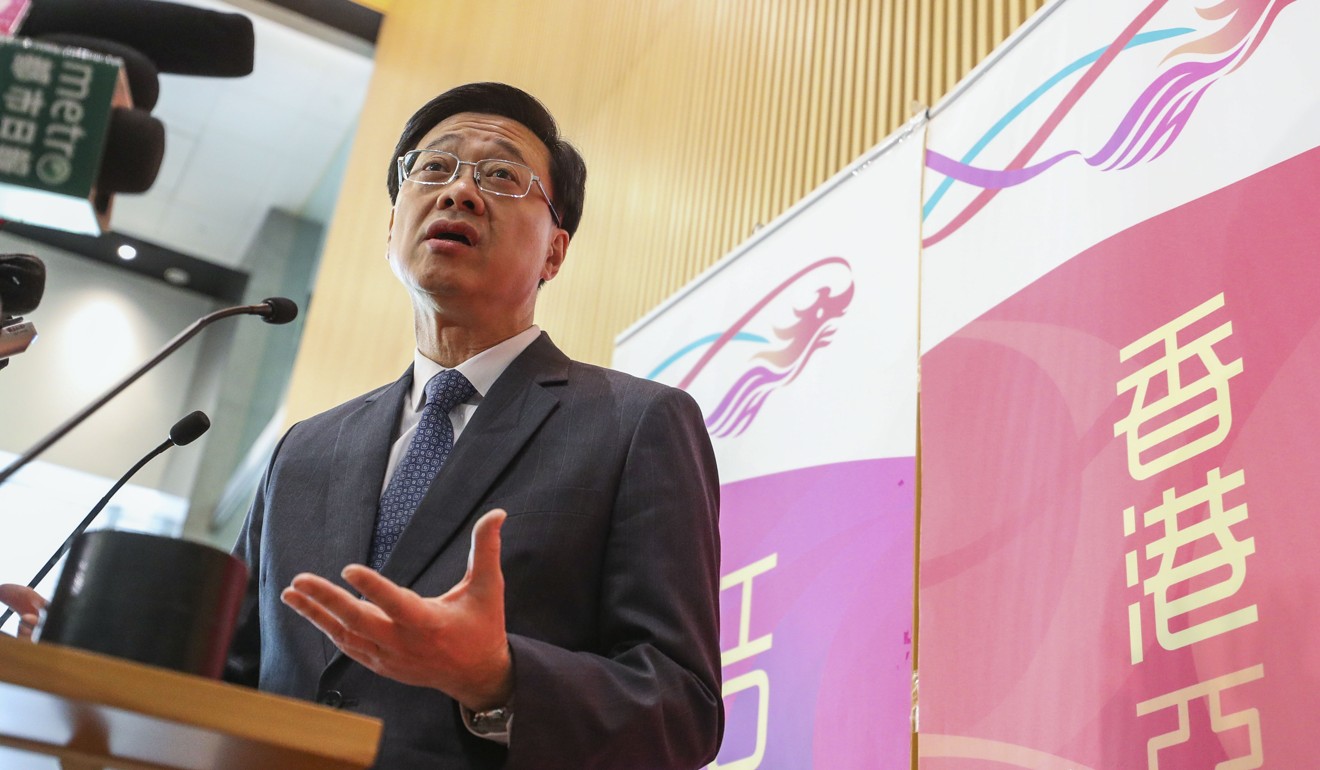
Hong Kong National Party leader Andy Chan says judicial review of attempt to ban it is possible
Police recommendation of outlawing party ‘a matter concerning the whole of Hong Kong’
The leader of Hong Kong’s embattled separatist party would not rule out fighting for his group’s survival in court, should the government go ahead with a plan to ban it as an “imminent threat” to national security.
“It is possible we will launch a judicial review,” Andy Chan Ho-tin said, when reporters pressed him on his next course of action at a forum on Sunday.
He said that would happen only if the ban is enforced, and if any subsequent appeal to the chief executive is rejected.
Chan chose his words carefully. He said: “I cannot use my words lightly … the secretary for security might cite what I do or say today.”
Lee has given the party until August 7 to submit a written statement convincing him not to give the force’s proposal the green light.
But Chan said he had not decided if he would respond to the minister.

“We have to be very careful, because the incident could have a wide influence. This is not a personal matter, or a problem of the HKNP’s, but a matter concerning the whole of Hong Kong,” he said.
Chan warned that the force’s mention of localism in the document suggested other political and advocacy groups in Hong Kong could face the same fate.
But pro-Beijing lawmaker Ma Fung-kwok argued that the government had been “very careful” in its handling of the matter.
“In the [HKNP’s] early days, some already questioned if it should be banned according to the Societies Ordinance, but the government and the police spent two years to gather information,” Ma said.
Ashley Tse Hiu-hung, who leads the Hong Kong Youth Against Independence Group hurled accusations at Chan, calling his ideas unconstitutional and against the Basic Law, the city’s mini-constitution.
Tse also questioned if other governments would tolerate terrorists, but refused to clarify if she was comparing the HKNP with terrorist groups.
“Will the United States protect terrorists’ freedom of speech?” she asked.
Chan asked her in response: “Can you find a gun on me?”

Pro-democracy camp veteran Albert Ho Chun-yan, who appeared at the forum as the chairman of the Hong Kong Alliance in Support of Patriotic Democratic Movements of China, said the HKNP posed no danger to national security.
Ho said Chan was “only a talker” advocating independence, adding: “Hong Kong should tolerate this, even if I disagree with him.”
Police monitored Chan’s appearance at the Victoria Park event. Apart from police in uniform, two men in plain clothes were also seen keeping tabs on his whereabouts.
When confronted by a reporter, one from the pair admitted they were police officers and said they were merely “observing” the forum and “maintaining public order”.
Asked why they did not display any identification, he said they did not exercise any police powers.
“If I displayed my badge, what difference would I have to a police in uniform?” he said.
Separately, Beijing loyalist Maria Tam Wai-chu said there were sufficient grounds for the police to propose banning the HKNP.
Tam, vice-chairwoman of the Basic Law Committee, which comes under China’s top legislative body, said on a televised programme that a person “didn’t have to fight the Chinese or Hong Kong governments with a gun to be considered endangering national safety”.
She noted that the party had distributed fliers calling for support for independence movements; visited schools to rally support; and spread its ideology with talks in Taiwan.
“These activities showed that they were plotting something,” Tam said.


